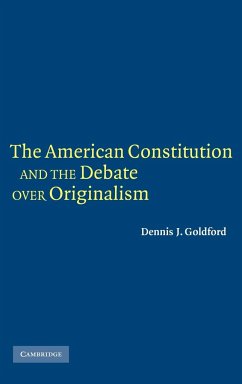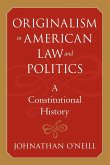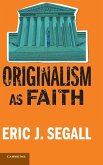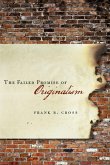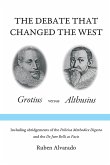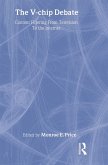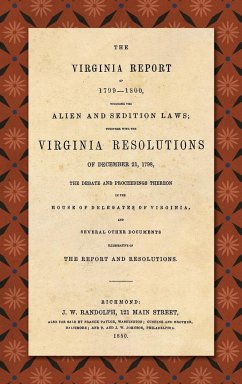It presents an innovative account of the democratic legitimacy and binding capacity of the Constitution.
Located at the intersection of law, political science, philosophy, and literary theory, this is a work of constitutional theory that explores the nature of American constitutional interpretation through a reconsideration of the long-standing debate between the interpretive theories of originalism and nonoriginalism. It traces that debate to a particular set of premises about the nature of language, interpretation, and objectivity, premises that raise the specter of unconstrained, unstructured constitutional interpretation that has haunted contemporary constitutional theory. It presents the novel argument that a critique of the underlying premises of originalism dissolves not just originalism but nonoriginalism as well, which leads to the recognition that constitutional interpretation is already and always structured. It makes this argument in terms of the first principle of the American political system: by their fidelity to the Constitution, Americans are a textual people in that they live in and through the terms of a fundamental text.
Table of content:
Preface; Introduction; 1. The politics of originalism; 2. The concept of a living constitution; 3. Interpretivism and originalism; 4. The paradox of originalism; 5. The problem of objectivity; 6. The epistemology of constitutional discourse (I); 7. The epistemology of constitutional discourse (II); 8. The ontology of constitutional discourse (I); 9. The ontology of constitutional discourse (II); 10. Conclusion: the political character of constitutional discourse; Index.
Hinweis: Dieser Artikel kann nur an eine deutsche Lieferadresse ausgeliefert werden.
Located at the intersection of law, political science, philosophy, and literary theory, this is a work of constitutional theory that explores the nature of American constitutional interpretation through a reconsideration of the long-standing debate between the interpretive theories of originalism and nonoriginalism. It traces that debate to a particular set of premises about the nature of language, interpretation, and objectivity, premises that raise the specter of unconstrained, unstructured constitutional interpretation that has haunted contemporary constitutional theory. It presents the novel argument that a critique of the underlying premises of originalism dissolves not just originalism but nonoriginalism as well, which leads to the recognition that constitutional interpretation is already and always structured. It makes this argument in terms of the first principle of the American political system: by their fidelity to the Constitution, Americans are a textual people in that they live in and through the terms of a fundamental text.
Table of content:
Preface; Introduction; 1. The politics of originalism; 2. The concept of a living constitution; 3. Interpretivism and originalism; 4. The paradox of originalism; 5. The problem of objectivity; 6. The epistemology of constitutional discourse (I); 7. The epistemology of constitutional discourse (II); 8. The ontology of constitutional discourse (I); 9. The ontology of constitutional discourse (II); 10. Conclusion: the political character of constitutional discourse; Index.
Hinweis: Dieser Artikel kann nur an eine deutsche Lieferadresse ausgeliefert werden.

